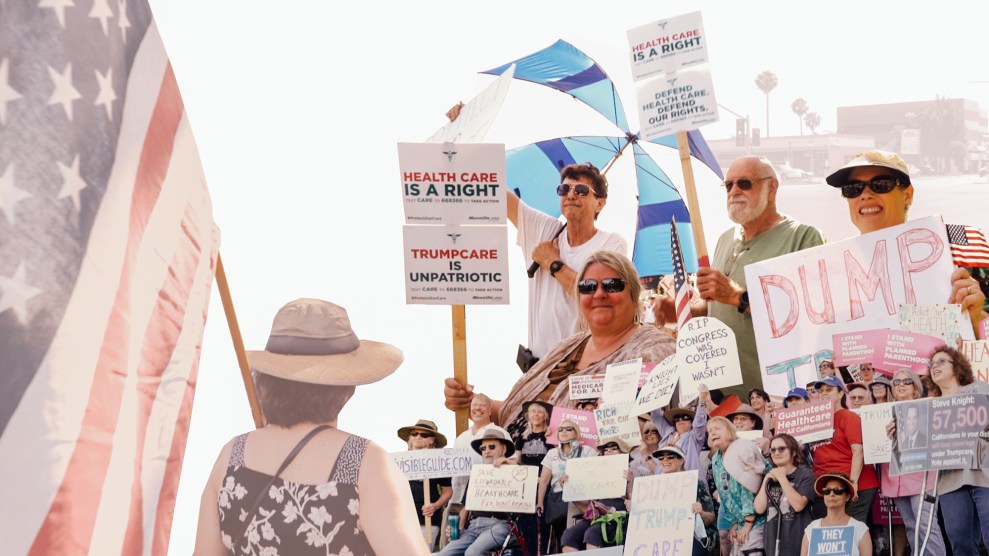
Republicans in Congress still can’t figure out what they want to do for health care. Despite no consensus among his party, Senate Majority Leader Mitch McConnell (R-Ky.) promised to bring his latest plan to gut Obamacare to a vote next week, after his first two attempts collapsed without the necessary votes. His plan—a rehash of a 2015 bill that President Barack Obama vetoed, and that the Congressional Budget Office said would leave 32 million more uninsured—is almost certainly doomed to fail, as long as senators don’t flip-flop on their public statements against the bill.
Grassroots campaigners around the country aren’t letting up the pressure while McConnell struggles, with advocates continuing to press politicians about the real-world dangers of killing Obamacare. At least 155 people were arrested Wednesday morning, protesting Republican health care efforts at Senate office buildings in Washington, DC—including outside McConnell’s office.
I wanted to learn more about what drives these protests, so I went to one earlier this month in Simi Valley, California, outside Republican Rep. Steve Knight’s district offices.
Knight voted in favor of the rollback of the Affordable Care Act in May but has remained quiet on plans up for consideration in the Senate. He is in a tricky spot: His district (alongside six others in California with Republican representatives) voted for Democrat Hillary Clinton in November. Meanwhile, one consumer advocacy group estimated that as of January 2017 at least 76,000 of Knight’s constituents have insurance thanks to the Affordable Care Act.
Lee Ann Holland joined the protest to advocate for her eight-year-old daughter, who has autism and epilepsy and depends on the ACA’s ban on denial of service for preexisting conditions. “I am afraid of what will happen to her after I’m gone,” Holland wrote me in a follow-up email. “If Medicaid and the services it provides to disabled adults are gutted, I am afraid of her being locked away in an institution. That is what keeps me up at night.”
After everyone else headed to their cars and back to their regular Thursday evenings, one woman hung around for a few moments more. Alone on the sidewalk, Desiree Patenaude brandished a Planned Parenthood sign in one hand, mimed honking a car horn with the other, and pleaded for “one more honk” from cars whizzing by. With no cars rising to the occasion, she finally gave up: “You could die out here trying, I guess.”
See Lee Ann and Desiree, along with others I met at the rally, in the series of videos below, and on Instagram.








